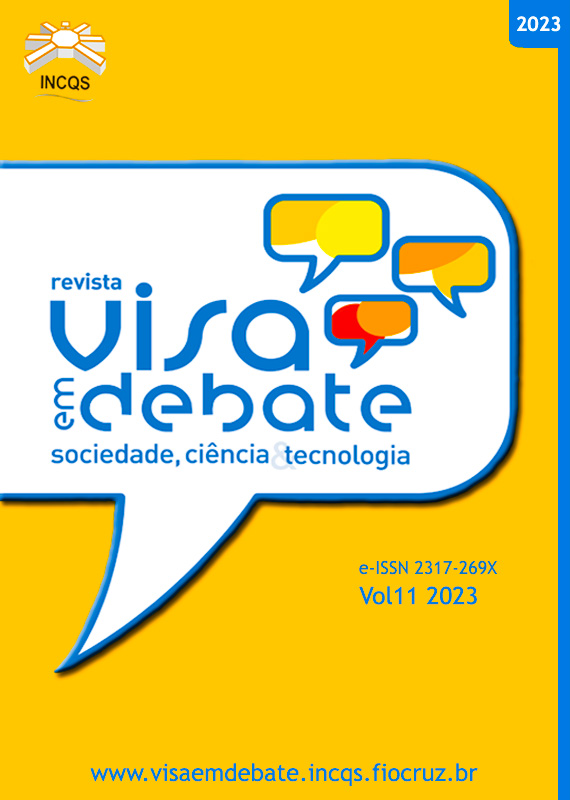Evidence and regulation for COVID-19 self-tests
Vigil Sanit Debate, Rio de Janeiro, 2023, v.11: e02063 | Published on: 27/02/2023
DOI:
https://doi.org/10.22239/2317-269x.02063Keywords:
COVID-19, SARS-CoV-2, Self-testing, Home Based Testing, RegulationAbstract
Introduction: The development of new diagnostic tests for SARS-CoV-2 is a strategic component for the prevention and control of COVID-19. To regulate the market for SARSCoV-2 antigen detection self-tests, the regulatory agency issued a resolution that provided for the introduction of self-tests in Brazil. Objective: To perform a comparison between the
new technical requirements of antigen self-tests for COVID-19 with data and information available in the literature. Method: This is a systematic literature review to carry out a comparative study between the scientific evidence and the new technical requirements for the commercialization of antigen self-tests for COVID-19 in Brazil. The search was performed in October 2021, and updated in January 2022. Results: Of the 517 studies identified, nine were included. The studies reported adequate sensitivity and specificity results for most self-tests performed in symptomatic people. The studies bring a variety of tests available and one of them was registered for commercialization in Brazil. Based on this outcome, national regulation follows standards that favor the promotion of self-monitoring by the population, which can contribute to a public health policy. Conclusions: The technical requirements contained in the new regulation and at the national level are consistent with the evidence found, which ensures reliability for decision-making by consumers, clinicians and service providers. It is necessary to continue with studies on self-test coverage for new variants, biological material disposal policies and how the use of self-tests can contribute to the role of consumers in health surveillance actions.
Downloads
Published
Issue
Section
License
Copyright (c) 2023 Erika Barbosa Camargo, Maíra Catharina Ramos, Flávia Tavares Silva Elias (Autor)

This work is licensed under a Creative Commons Attribution 4.0 International License.
COPYRIGHT ALLOWANCE The author (s) hereinafter designated as the ASSIGNOR hereby assign and transfer, free of charge, the ownership of the copyrights related to this ARTICLE to the Vigilância Sanitária em Debate: Sociedade, Ciência & Tecnologia (Health Surveillance under Debate: Society, Science & Technology) – Visa em Debate, represented by FUNDAÇÃO OSWALDO CRUZ, established at Av. Brasil, nº 4365, Manguinhos, Rio de Janeiro, RJ, Brazil, CEP 21045-900, under the conditions set out below: (a) The terms and conditions set forth in this Agreement shall apply to the following: 1. The ASSIGNOR declares that they s(he) is (are) the author (s) and owner (s) of the copyrighted property of the ARTICLE submitted. 2. The ASSIGNOR declares that the ARTICLE does not infringe the copyrights and / or other property rights of third parties, that the disclosure of images (if any) has been authorized and that they s(he) assume(s) full moral and / or property liability for its content, before third parties. 3. THE ASSIGNOR assigns and transfers all copyrights relating to the ARTICLE to the ASSIGNEE, especially the rights of editing, publication, translation into another language and reproduction by any process or technique. The ASSIGNEE becomes the exclusive owner of the rights related to the ARTICLE, and any reproduction, totally or partially, is prohibited in any other means of publicity, printed or electronic, without prior written authorization from the ASSIGNEE. 4. The assignment is free and, therefore, there will be no remuneration for the use of the ARTICLE by the ASSIGNEE.






